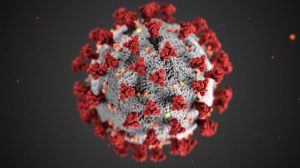Dec
12

Posted by Margot M on December 12th, 2020
Posted in: NIH
Tags: COVID-19, professional development
 On December 3-4, 2020, the National Institutes of Health hosted the Workshop on Post-Acute Sequelae of COVID-19. The goal was to summarize existing knowledge and to identify key knowledge gaps. On Day One, Dr. Anthony Fauci welcomed over twenty biomedical researchers to give quick summaries. Dr. John Brooks (CDC) lay the groundwork with the epidemiological and clinical landscape, followed by Drs. Ann Parker (Johns Hopkins) and Joshua Vasquez (UCSF) with reports from their respective clinics. Dr. Janet Diaz (WHO) gave the global perspective.
On December 3-4, 2020, the National Institutes of Health hosted the Workshop on Post-Acute Sequelae of COVID-19. The goal was to summarize existing knowledge and to identify key knowledge gaps. On Day One, Dr. Anthony Fauci welcomed over twenty biomedical researchers to give quick summaries. Dr. John Brooks (CDC) lay the groundwork with the epidemiological and clinical landscape, followed by Drs. Ann Parker (Johns Hopkins) and Joshua Vasquez (UCSF) with reports from their respective clinics. Dr. Janet Diaz (WHO) gave the global perspective.
Dr. Brooks stated that humans have coped with coronaviruses in the past, but coronaviruses are like family–each virus is not exactly like its sibling. COVID-19 is extraordinary in its effects on multiple systems. From the clinical perspective, Dr. Parker observed that all survivors of critical illness are at risk for developing impairments in physical function, cognition and mental health. Bedrest, sedatives, social isolation and grief take a toll. Likewise, we are seeing these phenomena in COVID-19 patients. Dr. Vasquez remarked on the waxing and waning of physical, functional, psychosocial and cognitive symptoms that he is observing in his patients after the acute phase of COVID-19 infections.
Dr. Diaz followed these presentations with a global overview. Worldwide, patients are experiencing reduced respiratory muscle strength, myocarditis, “brain fog”, Post-Traumatic Stress Disorder, and multiple other symptoms. Dr. Diaz pointed to the CDC survey on symptom duration and disability in the post-acute phase of infection. In the afternoon, researchers presented their observations on immunological responses, and the impacts of COVID-19 infection on neurological, psychiatric, neuromuscular, cardiovascular, pulmonary, renal, GI, metabolic, immunologic and rheumatologic systems. Dr. Peter Rowe (Johns Hopkins) finished the day with a case study of young adults infected with COVID-19.
On Day Two, the workshop included breakout sessions to explore knowledge gaps. The recordings of these 90-minute breakout sessions are available for viewing through NIH videocast.
As we head into the winter months, consider this opportunity to learn what researchers are talking about as they explore the post-acute sequelae of COVID-19. As one researcher said, this is pretty messed up. Solutions will need to be multidisciplinary.